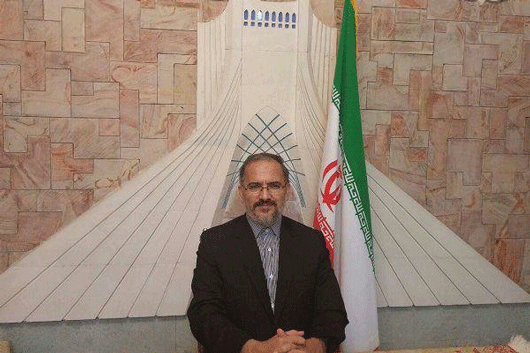
Local Editor
Iran’s chargé d’affaires to Yemen has said the country’s Ansarullah movement has reached such a position today that no army in the region is willing to face it.
"Ambitious ideas of Saudi princes, their rivalry [on power], following policies of Israeli regime and some US allies in the region resulted in brutal invasion of Saudi Arabia on Yemen," Morteza Abedini said to Mehr correspondent.
"The outcome was nothing but destruction of Yemen’s infrastructures, killing and injury of near 27 thousands civilians, displacement of about 3 million Yemenis as well as terrible food shortage," added Abedini.
Noting the Saudi failure in reaching their goals in Yemen, the official said, "although the Saudi and Coalition forces have claimed the capture of Yemen’s southern provinces, but the fact is that they even couldn’t provide a safe place for exiled Yemeni authorities; Saudis, despite spending billions of dollars, have failed in Yemen."
Given the role of Ansarullah movement in Yemen developments, Abedini reaffirmed that "the movement lacked any special political status and its involvement in the government was confronted by Yemeni opposition stream and some regional governments, which was the cause of the imposed war," and continued "however today, after one year of resistance despite full aerial, naval and ground blockade, the movement is recognized as a vital internal and regional player."
"The Yemenis’ hatred towards the Saudis would pass from a generation to another and this would lead to decline of Saudi Arabia’s influence," emphasized Abedini.
Saudi Arabia began its deadly campaign against Yemen in late March 2015. The strikes were meant to undermine the Houthi Ansarullah movement and restore power to fugitive former president Abd Rabbu Mansour Hadi.